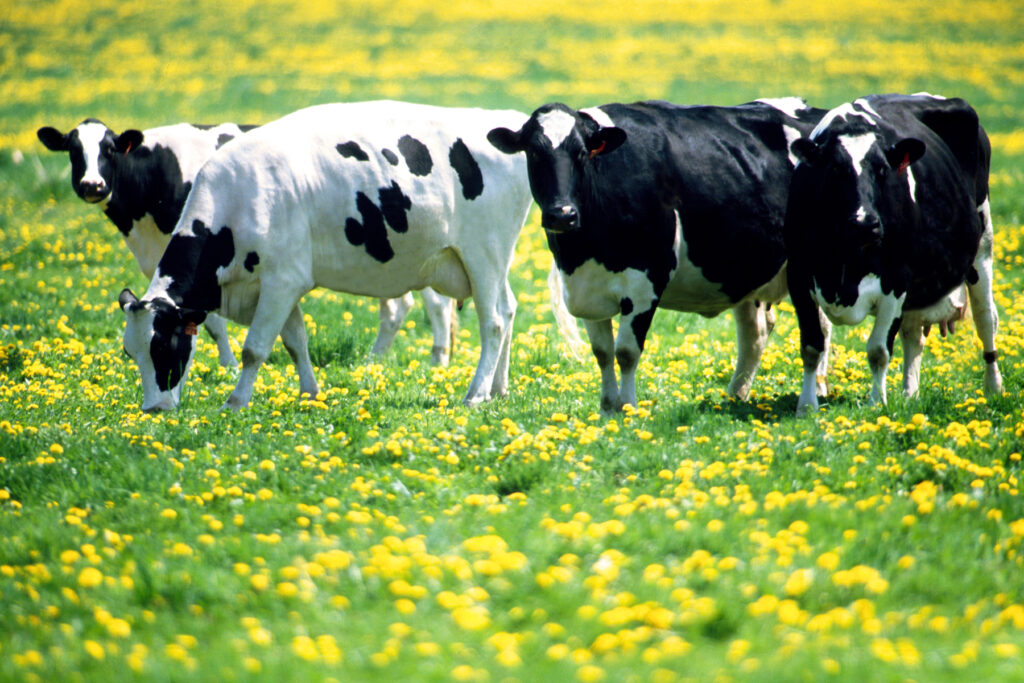CEO Miles Hurrell says while the forecast Farmgate Milk Price for this season has been impacted by reduced demand, the Co-op remains on track for a strong full year dividend.
Farmgate Milk Price
The reduced short-term demand, particularly from China, has had an impact on our 2022/23 forecast Farmgate Milk Price.
“We’re well through the season now, with almost all of our milk contracted, giving us more certainty on where we’ll end the season.
“Global Dairy Trade prices have not recovered to the levels required to hold the previous midpoint for this season. For these reasons, we have narrowed the forecast range for the 2022/23 season from $8.00 – $8.60 per kgMS to $8.10 – $8.30 per kgMS and reduced the midpoint from $8.30 per kgMS to $8.20 per kgMS.
“The opening forecast Farmgate Milk Price for next season of $7.25 to $8.75 per kgMS, with a midpoint of $8.00 per kgMS, reflects an expectation that China’s demand for whole milk powder will lift over the medium-term.
“We expect demand to gradually strengthen over the course of FY24 as China’s economy continues to recover from COVID-19.
“However, the timing and extent of this remains uncertain, with China’s in-market whole milk powder stocks estimated to be above normal levels following increased domestic production. This is reflected in our wide opening forecast range for the season.
“We recognise the pressure farmers are under and have designed a new Advance Rate guideline to get cash to farmers earlier in the season.
“Our strong balance sheet allows us to make these changes and we will be using this new Advance Rate guideline going forward, starting with the season about to commence” says Mr Hurrell.
Business performance
Fonterra has reported a profit after tax of $1,326 million, equivalent to 81 cents per share, for the third quarter of FY23.
This is up $854 million on the same period last year and includes the gain on sale from Soprole of $260 million.
“Excluding the net gain from divestments, our normalised profit after tax improved on last year, up $606 million to $1,078 million, equivalent to 65 cents per share.
“This is due to strong performance in our Ingredients channel, with continued higher margins in our cheese and protein portfolio, particularly casein and caseinate.
“These favourable price relatives have continued longer than expected, and we’re also seeing improved performance coming through in our Foodservice and Consumer channels, in particular in Global Markets.
“As a result, we have lifted our FY23 full year forecast normalised earnings to 65-80 cents per share from 55-75 cents per share and remain on track for a strong full year dividend.
“Total Group normalised operating expenses are up in part due to the impact of impairments reported in our FY23 Interim Results in March, as well as ongoing inflationary pressures,” says Mr Hurrell.
Progress on strategy
In the third quarter of FY23, Fonterra continued to make progress on its long-term strategy.
“The Co-op has transitioned to its new Flexible Shareholding capital structure,” says Mr Hurrell.
“We have also completed the divestment of Soprole and finalised our exit of China Farms following the sale of the last remaining farm.
“With the sale of Soprole now complete, we are bringing forward payment of our proposed capital return of around 50 cents per share and unit from October 2023 to August 2023.”
Implementation of the capital return, which is approximately $800 million, remains subject to a Scheme of Arrangement being voted on by shareholders, and approval by the High Court, which is a common process for this type of transaction.
“We’re also continuing to take steps towards our sustainability goals, and are expecting to announce a scope 3, or on-farm emissions target, in the middle of this calendar year.
“Meetings are underway with farmers where we’re sharing more information on what a target will look like and how we can collectively achieve it.
“It’s also pleasing to see the Centre for Climate Action Joint Venture, of which Fonterra is a shareholder, is now operational.
“The JV has made its first investment, contributing $1.8 million to Ruminant BioTech, a New Zealand-based start-up that is developing a slow-release, biodegradable, methane-inhibiting bolus,” says Mr Hurrell.



